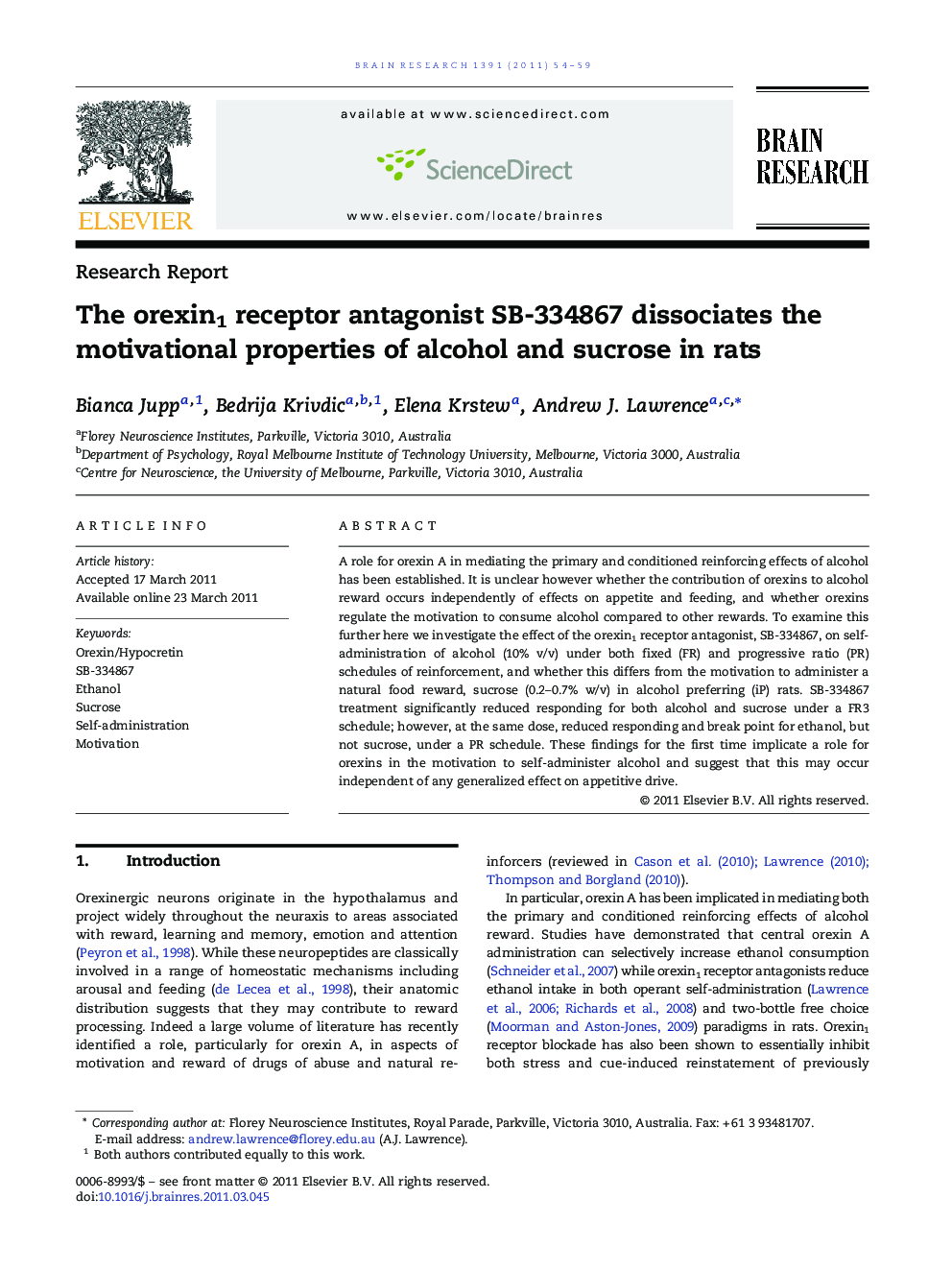| Article ID | Journal | Published Year | Pages | File Type |
|---|---|---|---|---|
| 4325947 | Brain Research | 2011 | 6 Pages |
A role for orexin A in mediating the primary and conditioned reinforcing effects of alcohol has been established. It is unclear however whether the contribution of orexins to alcohol reward occurs independently of effects on appetite and feeding, and whether orexins regulate the motivation to consume alcohol compared to other rewards. To examine this further here we investigate the effect of the orexin1 receptor antagonist, SB-334867, on self-administration of alcohol (10% v/v) under both fixed (FR) and progressive ratio (PR) schedules of reinforcement, and whether this differs from the motivation to administer a natural food reward, sucrose (0.2–0.7% w/v) in alcohol preferring (iP) rats. SB-334867 treatment significantly reduced responding for both alcohol and sucrose under a FR3 schedule; however, at the same dose, reduced responding and break point for ethanol, but not sucrose, under a PR schedule. These findings for the first time implicate a role for orexins in the motivation to self-administer alcohol and suggest that this may occur independent of any generalized effect on appetitive drive.
Research highlights► The role of orexins in the motivation for alcohol consumption is unknown. ► SB-334867 treatment reduced ethanol and sucrose self-administration. ► The same dose of SB-334867 reduced motivation to consume alcohol but not sucrose. ► Orexins role in motivation for alcohol is likely independent from appetitive drive.
